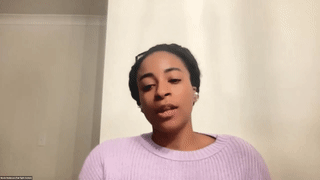|
 |
 |
How the Far-Right Plans to Rig Democracy Through the Supreme Court
Marc Elias & Lauren Groh-Wargo Break Down the Far-Right Attack on Voting Rights
The Voting Rights Act is on the Line
Last night, we hosted a live conversation with Marc Elias and Fair Fight CEO Lauren Groh-Wargo about the Supreme Court’s re-hearing of Louisiana v. Callais and what it could mean for the future of our democracy.
The discussion unpacked why the Supreme Court re-heard the case, the risk to Section 2 of the Voting Rights Act, and how these attacks fit into a larger plot by the far-right to lock in one-party rule.
The Case, Explained
On Wednesday, October 15, the Supreme Court re-heard arguments in Louisiana v. Callais, a case that could decide whether Section 2 of the Voting Rights Act remains constitutional. That part of the law has protected voters of color for six decades and ensured they can elect candidates of their choice. Here’s what’s happening:
After the 2020 census, Louisiana’s GOP legislature passed a congressional map that was found by a court to be discriminatory against Black voters.
A federal court ordered the state to draw a second majority-Black district to fix a violation of the Voting Rights Act.
When they passed a new map in response to the court order, a group of self-described “non-African American” voters sued, claiming that fixing the discriminatory map violated their rights.
That challenge succeeded in a lower court. Louisiana appealed to the Supreme Court.
The Court heard arguments but decided not to rule, eventually calling for a re-hearing, which just took place on Wednesday, October 15, 2025.
Why It Matters
Marc Elias explained that the last time the Supreme Court did something like this was in 2009 with the controversial Citizens United decision. That ruling unleashed unlimited corporate money in politics. This time, the risk is the Voting Rights Act itself.
Lauren Groh-Wargo also broke down the stakes, explaining how the far-right’s plot to dismantle the Voting Rights Act is about disempowering Black voters in the South to create lasting one-party rule. She laid out their “three-vector” strategy:
A nationally coordinated gerrymandering scheme
Weakening or eliminating the Voting Rights Act
A mid-decade re-do of the Census
Republicans believe combining these could flip up to 42 congressional seats and cement their control of Congress.
What Comes Next
Marc warned that the Court could issue its ruling as early as January 2026, potentially giving states time to redraw maps before the midterms. Louisiana already has a special redistricting session set for late October, with “trigger maps” ready to go if the ruling comes down.
Lauren noted that the impact will extend far beyond Louisiana. Every level of representation could be affected, from Congress, to county commissions and school boards. Fair Fight and its partners are already organizing across the region – from new special elections in Mississippi to upcoming fights in Georgia, the South will be the front line of this battle.
The Bigger Picture
This conversation widened to the broader authoritarian strategy. Trump’s allies are testing how far they can go, from deploying troops into majority-Black cities to using “national emergency” powers to interfere in elections. Lauren explained how this fits into Project 2025, a ten-point Republican plan to reshape how Americans vote. It includes:
Proof-of-citizenship requirements for registration
Restricting early and mail voting
Empowering partisan actors to reject election results
Spreading disinformation about “election integrity” to justify it all
Jump to Key Moments
0:20 — Introduction to topics and presentation of the threats to democracy across courts and states
2:29 — Marc explains how Louisiana v. Callais became a direct test of the Voting Rights Act
5:35 — The Citizens United comparison and what that means for timing
7:26 — Why the Court may rule early to affect the 2026 midterms
14:08 — The return of Jim Crow-style representation in the South
15:48 — Lauren details the GOP’s “three-vector” power strategy
19:18 — Why litigation still matters and how Fair Fight uses it
30:15 — Marc discusses Trump’s potential use of the military to suppress voters
39:50 — Lauren outlines Project 2025 and the ten-point plan to control elections
44:10 — What comes next and how to fight back
Stay Connected
For more conversations like this, subscribe to Rights & Insights, where we break down the far-right’s coordinated attacks on democracy and share how to fight back.
Follow Fair Fight for updates, analysis, and ways to take action ahead of the 2026 midterms.